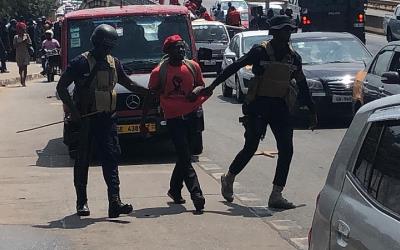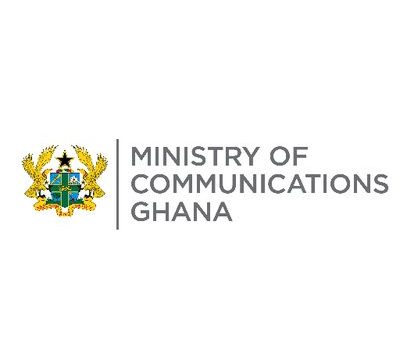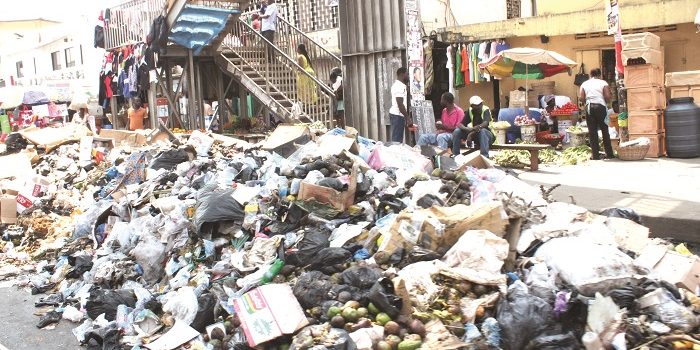1st March 2020
OCCUPYGHANA® PRESS STATEMENT
COVID-19 – ARE WE READY?
Since the very first patient reported to a hospital in Wuhan China on 1 December 2019, the COVID-19 virus has led to 87,586 confirmed infections and 2989 reported deaths worldwide as at 1 March 2020.
Wuhan in the Hubei Province in China is the epicentre of this outbreak that is reaching pandemic status and even though cases have been reported from 57 countries so far, China remains the country with the most cases and deaths.
In the last week or two, Iran, Italy and South Korea have reported an increasing number of cases too.
Until last week, no cases had been reported from countries in sub-Saharan Africa. However, that changed when an Italian travelled to Nigeria from Milan, Italy (the epicentre of the outbreak there) and was found to be positive for a COVID-19 infection. This shows that it is only a matter of time until cases are seen in Ghana too. With the amount of travel between countries in the sub-region and also between the region and Europe, we in Ghana are bound, sooner or later, to see cases.
That is why the country needs to be prepared if an outbreak should occur.
The Ghana Health Service (GHS) recently released a paper detailing its degree of preparedness. The efforts to prepare for and deal with a possible outbreak of COVID-19 are being spearheaded by the Emergency Operations Centre (EOC) with help from units like a Rapid Response Team (RRT). We commend all involved in those efforts. However, we cannot escape the fact that the nation’s health sector is weak and not well-resourced. This means that our preparedness for epidemics and/or pandemics may not be the most optimal. The 2019 Global Health Security Index, published by Johns Hopkins and the Nuclear Threat Initiative ranked Ghana 105th out of 195 on preparedness for epidemics and pandemics.
Notwithstanding these odds, Ghana has been able to deal with outbreaks like H1N1 influenza and cholera; so the ability is there.
Thus, where a possible COVID-19 outbreak is concerned, thought must be given to what to do when our resources are stretched to the maximum. There must be a Plan B. With this Press Release OccupyGhana® seeks to explore that.
In planning for a possible COVID-19 outbreak, OccupyGhana® suggests that Ghana considers the following variables:
1 – Surveillance;
2 – Containment;
3 – Prevention;
4 – Testing;
5 – Treatment;
6 – Coordination; and
7 – Finance.
- SURVEILLANCE
Since COVID-19 started and is spreading outside Ghana, keeping an eye on travellers to Ghana from the countries with outbreaks of the virus is of utmost importance. The Ghana Health Service (GHS) in collaboration with the respective stakeholders is already monitoring travellers at our ports-of-entry. Since patients infected with the virus may not show symptoms in the first 14 days, the combination of temperature monitoring and the use of the health declaration form is a good idea. To ensure that surveillance at these ports-of-entry are done properly, the calibre of medical staff manning these health post must meet international standards.
In our places of work and worship, in our schools and universities, we should all be on the lookout for those who may appear ill and ask them to seek treatment or to self-quarantine.
Surveillance testing is another important yet expensive part of dealing with an outbreak. The Chinese surmised that COVID-19 could be circulating more broadly and undetected in the community, especially in patients with fever, flu-like or SARS-like symptoms. Thus, they tested broadly and widely, including all who showed these symptoms and those who presented to their fever clinics. In Guangdong Province, by 24 February 2020, 320,000 suspected cases had been tested. 420 patients tested positive, giving a yield of about 0.14%. Given our economic means, surveillance testing may not be feasible.
- CONTAINMENT
Quarantining those who are suspected of having the virus either because they travelled to a high-risk area and/or have had contact with a person with the virus is one of the best ways of preventing the spread of the disease. The only known quarantine centre we have is a 100-bed new hospital. Thought must be given to finding alternatives. Could finished but unused public housing be commandeered for this purpose? Other unused hospitals? What about tents or converted containers?
Another option is for patients to self-quarantine at home. This calls for a high level of discipline on the part of patients. Maybe law-enforcement could be used to ensure isolation is adhered to. The police and even the army may be necessary in those instances where whole communities or even towns may need to be isolated.
- PREVENTION
That can go a long way to reduce the contraction and spread of the virus. Enough cannot be said about personal hygiene including the washing of hands for at least 20 seconds and keeping a safe distance of at least 1 meter from persons with symptoms. The use of face masks by infected patients may reduce the spread of droplets when they cough or sneeze.
People who fall sick with symptoms that may be due to COVID-19 should consider not going to work, school or even church. They should avoid large gatherings.
In this, public education assumes a very important role. Constant education of the public through TV, radio and social media would be very helpful.
Events that call for large gatherings – funerals, church services, campaign rallies, sporting events – may need to be curtailed.
Ghana’s experience from the H1N1 epidemic in 2009 when the 1st confirmed case reported at a private clinic in Accra should teach us that the frontline primary care facilities could well be where the first case would be picked up. Private facilities are the first option for foreigners and this could be the route for community entry and transmission of COVID-19. Even preliminary checks by OccupyGhana®’s Medical Team suggest that preparedness at the front-line facilities is poor. Being prepared means making sure front-line clinics and polyclinics have the logistics and supplies needed to screen, catch and hold suspected cases until help is received from the Rapid Response Team. Currently, even though some training has been done, no additional support like Personal Protective Equipment has been made available at this level.
Several numbers have been made available for a hotline. Maybe there should be just one number made up of 3 easy-to-remember digits. Also, these numbers cannot be the personal phone numbers of medical personnel.
- TESTING
Testing is now being done at just two places – Noguchi Memorial Institute and the Kumasi Centre for Collaborative Research. The Emergency Operations Centre (EOC) should ensure that all frontline clinics know what to do when a patient shows up with symptoms suspicious of COVID-19 infection.
These clinics should have holding rooms for such cases. The personnel should also have protective gear that allows them take samples from the patient that the Rapid Response Team can then pick up. Having an easy-to-remember hotline number helps.
- TREATMENT
Tema General and Ridge hospitals have been designated as the two hospitals for isolating and treating these patients. Four other facilities (Ga East, Police, LEKMA and Korle-Bu Teaching Hospitals) have been identified as additional facilities to support case management.
However, are these isolation and treatment centres ready and able to accept and manage confirmed cases? Do they have adequate stocks of oxygen, ventilators and other vital equipment? We were surprised to learn that until a few days ago, Tema General Hospital had no running water. We were also shocked to learn about how Korle Bu Hospital, a designated support centre for COVID-19 buckled under when its lack of readiness was exposed by 2 suspected cases. How can we trust that these designated centres are up to the task?
COVID-19 can lead to severe pneumonia and even Acute Respiratory Distress Syndrome (ARDS). These complications call for intubation and ventilation in the intensive care setting. Ghana has very few ventilators nationally. The health system could get very overwhelmed quickly if there is an outbreak of COVID-19. Without an acute expansion of our intensive care capabilities in the next few days, we need to realise that not everyone who will need life support is going to get one. So, for the future we urge the government to expand our intensive care capabilities and also set up at least 1, preferably 2 specialised hospitals for Infectious Diseases management and research. These emergent viral diseases are here to stay.
Lastly, so as not to overload our already crowded medical facilities, those with mild symptoms should be advised to stay home. That will all depend on the level of education that is done.
- COORDINATION
The Emergency Operations Centre (EOC) which was set up during the Ebola epidemic was dismantled after that outbreak died out. That should never have happened. Ghana is constantly buffeted by infectious disease outbreaks and the ability to deal with them on a large scale should be maintained at all times. However, per the statement from the GHS recently, another EOC has been set up in the wake of COVID-19. Moreover, the Incident Commander of the EOC or a surrogate should maintain open lines of communication with the general public. It helps inform, diffuse anxiety and counter mis-information. There’s also the need to prepare a COVID-19 vaccine deployment plan now and explore access mechanisms as WHO has already deemed Ghana to be among the high-risk African countries.
- FINANCES
Government initially declared an emergency provision of GHS2.5m for COVID-19 preparation. Subsequently, the MOH/GHS EOC estimated a budget of about GHS35m. It is understood that an initial GHS2.5m is in the pipeline. The slow pace of MOH/GHS mobilisation is very worrying as COVID-19 is a global emergency.
In conclusion, although Ghana may not be as prepared as a lot of developed nations, OccupyGhana® believes that if we consider the above, use our resources well, think outside the box and figure out alternatives, we might just avert a disaster should there be a COVID-19 outbreak.
In the Service of God and Country
OccupyGhana®









Recent Comment